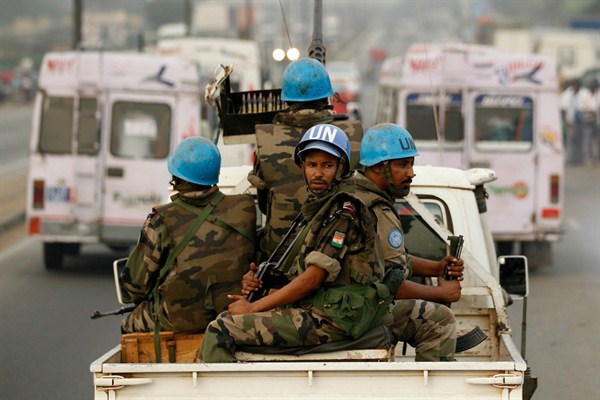United Nations peacekeepers have a branding problem. The blue helmets, once much-admired symbols of international cooperation, are now routinely associated with venality and incompetence. Regular allegations of sexual abuse have tarnished their reputation, and U.N. forces have struggled to manage surges of violence in trouble spots such as South Sudan. The U.N. has not yet properly come to terms with well-attested claims that Nepali peacekeepers introduced cholera to Haiti, killing thousands.
As a result, media reports about peacekeepers now start from the presumption that U.N. personnel are a problem rather than a solution to major crises. U.N. officials wearily note that recent academic analyses confirm that blue-helmet deployments significantly reduce mortality rates in war-damaged states. They also point to the fact that the U.N. is in the midst of wrapping up a series of long-running missions in cases including Liberia and, yes, even Haiti, where they seem to have established reasonable levels of stability.
It is not easy to make journalists and political analysts take note. Even senior U.N. staff appear to have grown tired of the blue helmets. Secretary-General Antonio Guterres, who has a canny instinct for what the big powers that run the U.N. want to hear, has been talking up preventive diplomacy rather than peacekeeping missions of late.

